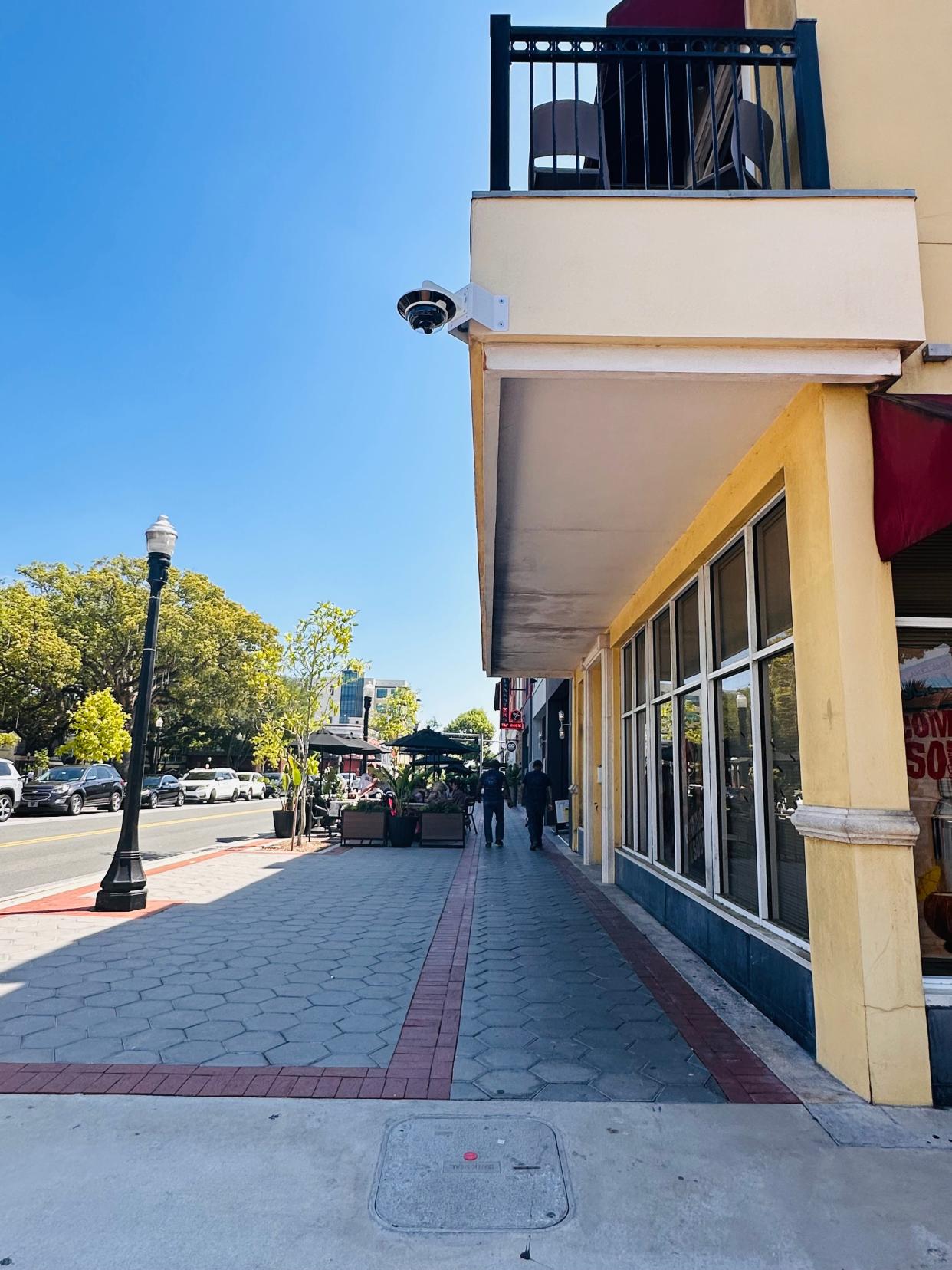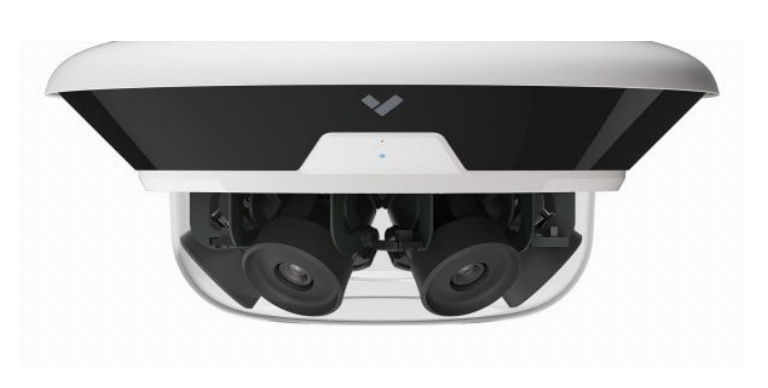LDDA turns off facial-recognition software in downtown security cameras

Lakeland Downtown Development Authority has disabled the facial recognition technology on its downtown security cameras after two weeks of public scrutiny and a threat of legal action.
Julie Townsend, the LDDA's executive director, sent out a public notice Thursday morning stating it has requested the facial recognition function of the 14 security cameras manufactured by Verkada be turned off . Townsend clarified to The Ledger the camera's software is already deactivated, but did not confirm as of when.
"The LDDA considers cameras an affordable and unbiased way to provide additional sets of eyes in the district to help keep the district clean and safe," reads the news release. "The cameras were not purchased or installed because of facial recognition technology (FRT), but we certainly appreciated the opportunity to use the software to enhance the safety of Downtown."
Townsend told The Ledger she had no further comment on the cameras or facial recognition software aside from the LDDA's issued news release.
City Commissioner Mike Musick told The Ledger as a commissioner and LDDA board member there were conversations about the facial recognition software and he recommended the facial recognition technology was turned off.

The American Civil Liberties Union and the ACLU of Florida issued a statement on March 29 that they had filed public records requests with both the LDDA and Lakeland Police Department demanding information about the facial recognition surveillance's use.
“The public deserves to know how this deeply invasive technology is being used, who is being targeted for round-the-clock monitoring, and what policies, if any, restrain its use,” said Nathan Freed Wessler, deputy director of ACLU’s Speech, Privacy, and Technology Project in a statement. “Real-time face surveillance poses such a massive threat to our civil rights and civil liberties that other American cities have rightly been unwilling to deploy it. Lakeland should reverse course immediately."
Townsend cited the ACLU's clear intent to pursue legal action and litigate the security cameras as a reason for asking Verkada to turn off facial recognition software on the cameras.
"The harmful effects of pointless litigation that the LDDA can not afford outweigh the small benefits that facial recognition would have provided," reads the LDDA's press release.
The Ledger reached out to the ACLU for any comment or response to the LDDA's disabling facial recognition software on the cameras, but did not receive an immediate response.
The LDDA has removed the three photos of individuals identified as "people of interest" that were uploaded into the facial recognition software, according to its news release. The organization simultaneously stated those three men "met the LDDA criteria for using the software."
The LDDA previously published standards on its website defining a "person of interest" as:
Someone who has been trespassed from multiple businesses in Downtown.
Someone who has been trespassed from the Farmers Curb Market, which is operated by the LDDA.
Someone who has threatened verbally or physically intimidated an employee.
Someone engaged in a crime in Downtown.
By disabling the facial recognition software, LDDA and its employees will no longer receive notice when these three individuals, or others, enter a camera's view.
The LDDA pointed out that it is not the only business entity that might have facial recognition technology on its security cameras.
"But if anyone thinks we are innovators in the American surveillance state, public and private, they are woefully naïve. This software capability is standard on most cameras. What is not standard is a commitment to explain to the public what we wanted to do and why," the news release said.
Three individuals stood before Lakeland commissioners at their Monday commission meeting to speak out against the LDDA's use of the cameras.
Lakeland resident Christopher Diaz was one of three individuals who asked Lakeland commissioners to intervene in the LDDA's use of facial recognition software.
"The issues with this is it is invasion of citizen's privacy. It is government overreach," he said.
Diaz said the three individuals being tracked by the cameras did not have warrants out for their arrest, and if they did, it would be for low-level misdemeanor crimes.
Townsend previously stated it would cost $112,500 for the cameras and their software over the next 10 years. It's unclear whether deactivating the facial recognition cameras will impact the costs.
"There's a logical gap in spending that money on these cameras for such a minor problem, especially when you could probably spend a quarter of the price on some overtime officers or deputies and solve the issue," Diaz said.
This article originally appeared on The Ledger: Lakeland's downtown security cameras no longer use facial recognition

